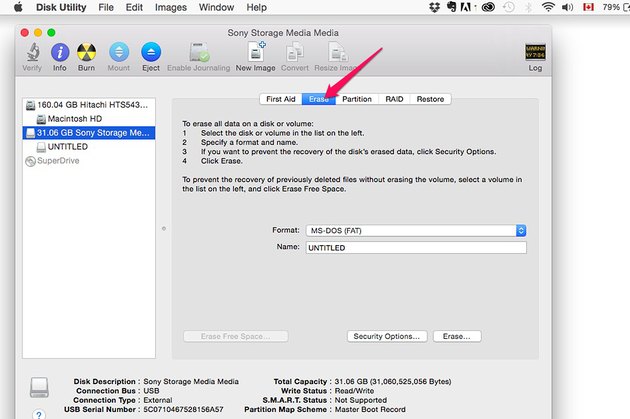29 July 2019 Senior Product Manager
Summary
- If you are using macOS 10.13 or later, you'll also see an option named APFS, which is the default file system of macOS 10.13 and later. APFS is a new file system for macOS. It's the most appropriate format for flash drives and SSDs. However, in order to write to this file system, you need to have the latest macOS.
- Connect the flash drive that you want to format. Go to Applications and Utilities and launch Disk Utility. The application will appear on the screen, and you will see the main window, with a list of available storage devices on the left and various disk management options on the right.
- But you should know the default format for your drive. It is advised not to change the default format of a Mac hard drive under any circumstances. You can check the format of a drive inside the Disk Utility Menu bar. Just click on the Get Info option and you’ll know the current format a drive is using to store files.
- Insert the flash drive or hard drive you want to format for Windows compatibility. Go to the Applications folder on your Mac’s hard drive, then go to the Utilities folder, and launch Disk Utility. Select the drive you want to format. Warning: the following steps will delete any info you currently have on the drive.
The overwhelming majority of USB flash drives you buy are going to come in one of two formats: FAT32 or NTFS. The first format, FAT32, is fully compatible with Mac OS X, though with some drawbacks.
Content
Step 1. Connect the USB to the computer; click [Computer] to select the target USB flash drive.
Step 2. Right-click the USB flash drive to select [Format]; then click [Start] in the pop-up window to format the USB flash drive.
Hot Topic - ADs Renee Undeleter – Simple & Powerful Software for Data Recovery
Renee Undeleter – Simple & Powerful Software for Data RecoveryEasy to use Recover data by 3 steps;
Format Flash Drive Mac Fat32
Multiple scan modes Fast partition scan, whole partition scan and whole disk scan;
Supported file types Image, video, audio, text, email and so on;
Image creation Create a partition image to read and back up data;
Mac Os Drive Formats
Supported devices SD card, SDHC, SDXC, USB flash drive, hard disk and computer.
Easy to use Recover data by 3 steps;
Multiple scan modes Fast partition/whole partition/whole disk scan;
Supported devices SD card/USB/hard disk.
Free Trial
Comments are closed.